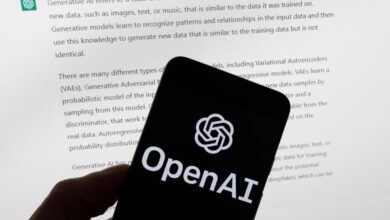Artificial Intelligence and Machine Learning Through the Eyes of the FDA

PE: Today, you were featured in a keynote interview titled “The AI view from the FDA.” For our audience, can you briefly explain what the discussion entailed and any questions that stood out to you?
Fakhouri: One of the points that came up that I thought was interesting was FDA’s experience with submissions that include AI and machine learning components. What I described was that since 2016, we’ve received over 300 submissions with AI and machine learning components across different stages of drug development, with the vast majority being in clinical research. The other topic that came up was FDA’s role in enabling this technology across the spectrum. We also discussed the fact that a lot of AI is being used in drug discovery, whether you’re predicting a molecule that could be a target for a clinical trial or the folding of a protein. This is generally outside of what FDA would look at, because eventually these therapeutics would enter through clinical testing, which is where the FDA would look at this data.
The third topic that I thought was really interesting was related to how the FDA looks at the validity of these models when they’re used in drug development and what areas we focus on. The way that we look at these models is that we want to make sure they are credible and trustworthy for the specific context of use. So, we would be asking questions about the data that was used to train or develop these models. We want to make sure that the data is fit for use, it’s robust to be able to develop good machine learning or AI models, and we would look at the performance of these models to make sure that they are doing what they’re intended to do.
PE: Recently, you led the development of a discussion paper titled ‘Using Artificial Intelligence and Machine Learning in the Development of Drug and Biological Products.’ Can you discuss the key takeaways of the paper?
Fakhouri: The discussion paper was published in May 2023, and it was actually accompanied by another discussion paper that focused on the use of AI in drug manufacturing. For these discussion papers, we wanted to describe the field where AI is used in the development of drugs. What are the key considerations when you’re using these tools? Again, looking at issues such as AI governance, accountability, trustworthiness, transparency, issues related to the quality of the data, and then issues related to model performance. The papers went out in May, and we received over 800 comments from 65 different organizations. We actually analyzed all of these comments, and we intend to use all of that information. We received comments from pharmaceutical companies, smaller biotech companies, and academia. We plan to use that information to inform a guidance that we are developing this year, hopefully published by the end of this year.
PE: Artificial intelligence is a fairly new concept when it comes to pharma. As it evolves, how do you see the FDA’s policy for its use in drug development changing?
Fakhouri: For the FDA, our approach is always risk-based for drug approvals. We also do our best to be responsive to new emerging technologies. This is not just for AI if you think about the use of real-world data, or the use of digital health technologies in clinical research. In the context of a clinical trial, these are all emerging technologies that are continuously evolving. We plan to grow with all of these emerging tools as they become available. Like I said, we’ve received over 300 submissions with AI and machine learning components. Depending on the specific context of the risk associated with using that model, how much am I relying on information or data from that model to make a regulatory decision? All of these would drive the type of information that we would ask the sponsor to provide us with.



